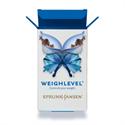Highlights
FDA Allows Heart Health Claim For Soybean Oil
 The FDA has approved a soybean producer’s health claim that soybean oil consumption cuts the risk of heart disease. According to industry analyst Hartman Group, heart health leads the list of health concerns among American consumers. Bunge, the world’s largest producer of soybean oil, said its FDA filing included summaries of clinical studies showing the potential benefits of soybean oil to heart health. Those benefits are based on soybean oil’s positive effect on cholesterol levels and its high concentration of polyunsaturated omega-6 and omega-3 fatty acids versus other oils and fats. The FDA decision means companies can now claim that soybean oil as an ingredient replacing saturated fat may reduce heart disease risk and lower LDL-cholesterol.
The FDA has approved a soybean producer’s health claim that soybean oil consumption cuts the risk of heart disease. According to industry analyst Hartman Group, heart health leads the list of health concerns among American consumers. Bunge, the world’s largest producer of soybean oil, said its FDA filing included summaries of clinical studies showing the potential benefits of soybean oil to heart health. Those benefits are based on soybean oil’s positive effect on cholesterol levels and its high concentration of polyunsaturated omega-6 and omega-3 fatty acids versus other oils and fats. The FDA decision means companies can now claim that soybean oil as an ingredient replacing saturated fat may reduce heart disease risk and lower LDL-cholesterol. Delicious Plant-Based Meal Options Could Reduce Dependence On Meat
Food industry watchers wonder whether a perceived trend toward plant-based eating represents a paradigm shift in American dietary habits, or is just a lot of hype. Certainly “reducetarianism” – plant-based eating driven by environmental and animal welfare concerns – is a real thing. But a wide variety of vegan diet options exist only in a few geographic pockets, and that needs to change. People are not likely to give up meat as a dietary choice in the near future. And not until the reducetarian movement succeeds at broadening the availability of delicious plant-based meal options.
Study Links Vegetarian Diet In Men To Depression Symptoms
U.S. and British researchers report that data collected from 9,668 adult male partners of pregnant women in a longitudinal study showed that vegetarian men are more likely to report “significant depressive symptoms.” Overall, the NIH-University of Bristol researchers found male vegetarians had higher depression scores than non-vegetarians after adjusting for an array of socioeconomic factors. Nutritional deficiencies (e.g., in cobalamin, iron, vitamin B12) could explain the findings. Other potential contributors include increased intake of omega-6 fatty acids, and higher blood levels of phytoestrogens from soy or vegetable-based foods.
Commercial Success Expected In U.S. For Reformulated Weight Loss Supplement
 A new dosage version of an herbal weight loss supplement is now on sale in the U.S. Weighlevel is a blend of extracts from the leaves of Lady’s Mantle, olives, mint, and cumin, plus a fiber developed by a Japanese company. Two clinical studies have been conducted in Denmark on the extended release formulation; the first will be submitted for publication this fall. The supplement, developed by a Danish company and researchers at the University of Copenhagen, is taken once daily instead of the three times recommended in an earlier fiber-less version. The once-a-day formulation could make the supplement commercially viable in North America.
A new dosage version of an herbal weight loss supplement is now on sale in the U.S. Weighlevel is a blend of extracts from the leaves of Lady’s Mantle, olives, mint, and cumin, plus a fiber developed by a Japanese company. Two clinical studies have been conducted in Denmark on the extended release formulation; the first will be submitted for publication this fall. The supplement, developed by a Danish company and researchers at the University of Copenhagen, is taken once daily instead of the three times recommended in an earlier fiber-less version. The once-a-day formulation could make the supplement commercially viable in North America. No Evidence Linking Whole Grains To Lower Heart Disease Mortality
A review of previous studies found that none tested whether eating whole grains influences the risk of death from heart disease, or the risk of a heart attack or a stroke. They did assess the impact of whole grains on risk factors for heart disease, such as blood pressure and cholesterol. But none found any differences based on the types of grains people ate. A large, undisputed body of evidence associates whole grains with other health benefits, however, including lower weight gain, better cholesterol, glucose and insulin levels, which are risk factors for heart disease. They are also a source of cereal fiber that has been linked to lower risk for heart disease, obesity and cancer.
Copyright 2025 Business360, Inc.


